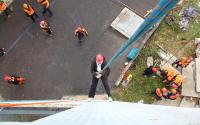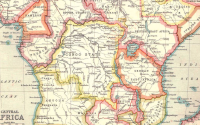15 October 2007Yahoo! NewsVeronika Oleksyn
Austria - Innsbruck — home to two Winter Olympics — is hosting a conference on how to cope with the warm winters and lackluster snowfall caused by global warming.
Some 400 people from 20 countries are in the Austrian winter sports mecca for three days of discussions on the future of the Alps. Discussions will focus on eight core themes related to mountains, including ecology, natural hazards, health and spatial planning and development.
A much-anticipated session Tuesday focuses on the impact of climate change on tourism.
The conference takes place just days after former Vice President Al Gore and the U.N.'s Intergovernmental Panel on Climate Change won the 2007 Nobel Peace Prize for their efforts to spread awareness of man-made climate change and lay the foundations for counteracting it.
"We have to do something ... we're in the midst of climate change," said Eric Veulliet, head of the alpS-Centre for Natural Hazard Management GmbH, which is organizing the conference along with the University of Innsbruck and the Austrian Academy of Sciences.
He said officials in the Alps — and in other mountain communities around the world — must recognize climate change, take action and come up with strategies for adapting to the future.
"It is too late for prevention," Veulliet said Monday at an opening news conference.
Securing a sustainable future for the Alps is of particular interest to countries such as Austria that have much to lose if winter sports enthusiasts take their business elsewhere because of snow-free slopes.
Christian Schoenwiese, a professor at the University of Frankfurt's Institute for Atmospherics and the Environment, predicted that, in years to come, the Alps would likely see either colder winters with less precipitation or warmer winters with more rain instead of snow.
"Tourism venues have to rethink. ... It will get more difficult for those who like to go skiing," Schoenwiese said in an interview with The Associated Press Monday evening.
Schoenwiese also said he expected weather to become more extreme and marked by greater variability.
Last season's unseasonably warm weather and lackluster snowfall caused concern not only among hotel owners and ski resort managers but also politicians. An annual tourism report recently revised by Austria's parliament contained a special section devoted to climate change.
Climate change already has had a huge impact on the economy, tourism industry and environment of the Austrian province of Tyrol, said Elisabeth Zanon, Tyrol's deputy governor.
She said "prevention" is the wrong word to use because climate change is already in full swing.
"That there's a change in the climate — that's a fact, we don't need a question mark there," she said.
___
On the Net:






